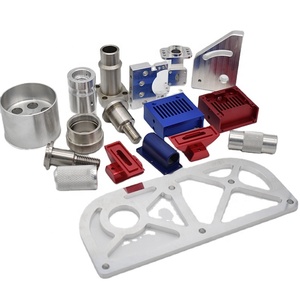CNC Turning Parts: An Introduction
CNC turning parts are precision-engineered components manufactured using Computer Numerical Control (CNC) turning machines. These parts are vital in various industries, ranging from automotive to aerospace, where high accuracy and repeatability are essential. With advancements in technology, CNC turning offers unparalleled efficiency and quality in producing complex shapes and geometries with minimal human intervention.
Types of CNC Turning Parts
CNC turning encompasses a wide array of parts tailored for specific applications. Here are some common types of CNC turning parts:
- Axles: Vital for connecting wheels to a vehicle, ensuring smooth rotation and strength.
- Spindles: Used in machinery for rotating components; critical for performance.
- Fittings: Connect different segments in plumbing and machinery for seamless flow.
- Brackets: Support structures that hold components together securely.
- Bushings: Reduces friction between moving parts; integral in enhancing equipment longevity.
Applications of CNC Turning Parts
The versatility of CNC turning parts makes them applicable in various scenarios, including:
- Automotive Industry: CNC turning parts are widely used in car components such as engines, transmission systems, and axles.
- Aerospace Sector: Components for aircraft require stringent quality checks, and CNC turned parts meet rigorous standards.
- Medical Devices: Precision components for surgical tools and various devices ensure safety and reliability.
- Electronics: Cases and brackets for circuit boards are increasingly manufactured using CNC turning techniques.
- Manufacturing Equipment: Essential components for machines that require high durability and precision.
Advantages of CNC Turning Parts
The quality and efficiency of CNC turning parts offer a myriad of benefits:
- Precision: CNC technology ensures high levels of accuracy, crucial for customized parts.
- Consistency: Automated processes result in uniformity across all parts produced, minimizing variations.
- Material Versatility: CNC turning can work with a wide variety of materials, including metals, plastics, and composites.
- Enhanced Efficiency: Faster production times and reduced manual labor lead to increased overall productivity.
- Cost-Effective: Longer-lasting and lighter components reduce operational costs over time.









































